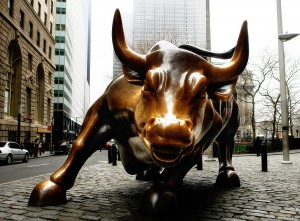 Via LGM, the approaching 200th birthday of Karl Marx is indeed a moment to digress upon the notion that Marx was right about a lot of things:
Via LGM, the approaching 200th birthday of Karl Marx is indeed a moment to digress upon the notion that Marx was right about a lot of things:
The key factor in Marx’s intellectual legacy in our present-day society is not “philosophy” but “critique,” or what he described in 1843 as “the ruthless criticism of all that exists: ruthless both in the sense of not being afraid of the results it arrives at and in the sense of being just as little afraid of conflict with the powers that be.” “The philosophers have only interpreted the world, in various ways; the point is to change it,” he wrote in 1845.
Racial and sexual oppression have been added to the dynamic of class exploitation. Social justice movements like Black Lives Matter and #MeToo, owe something of an unspoken debt to Marx through their unapologetic targeting of the “eternal truths” of our age. Such movements recognize, as did Marx, that the ideas that rule every society are those of its ruling class and that overturning those ideas is fundamental to true revolutionary progress.
We have become used to the go-getting mantra that to effect social change we first have to change ourselves. But enlightened or rational thinking is not enough, since the norms of thinking are already skewed by the structures of male privilege and social hierarchy, even down to the language we use. Changing those norms entails changing the very foundations of society.
Also true that quite a number of people are afraid to even delve into Marx because ‘Marx,’ which is it’s own quiet little brand of pathetic. Add ‘closing books you’ve never opened’ to the long list of epithets at the heart of our ignorance. Plenty of ills have flowed out of his ideas, but the posture of critique about all of this madness is one we cannot afford to be afraid of.
Image: Marx welcoming pedestrians in his birthplace of Trier.


